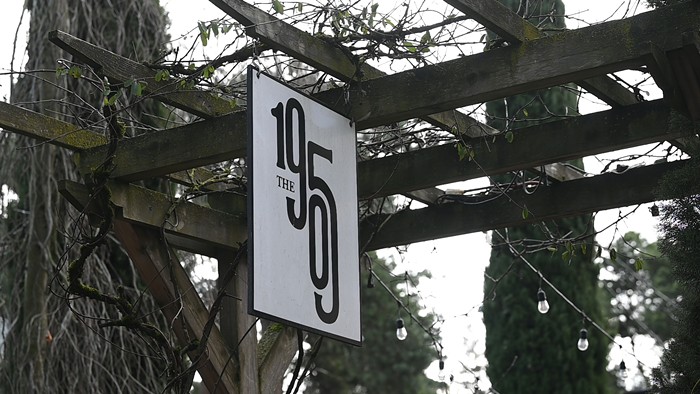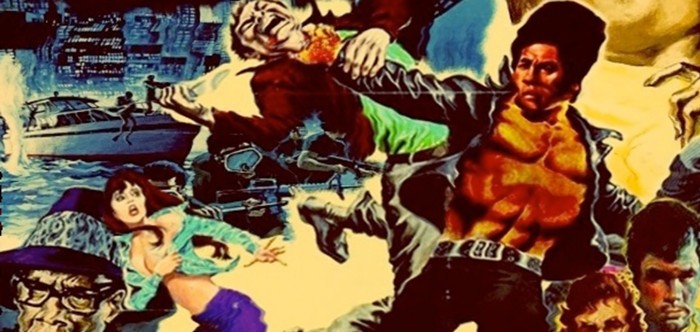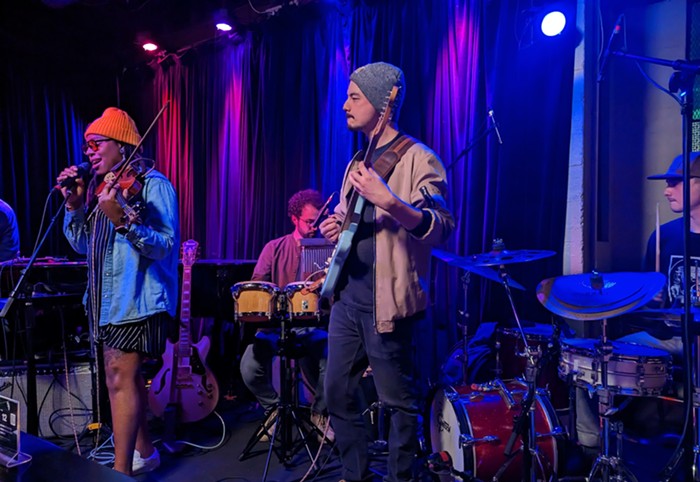MERCURY: I'm glad to hear everyone is safe from the fire at your apartment building. What happened?
NEIL FINN: We rented a place in New York and a few days after we moved in, the entire roof caught fire. We got out in a couple minutes with passports and computers; the apartment wasn't burned but it was severely water damaged. Everyone's safe—no one was hurt in the fire—it happened at five o'clock on a Friday afternoon so few people were home. [Bassist] Nick Seymour used to draw pictures of burning buildings in the early days so we figured it was prophesied.
Congratulations on the new Crowded House album, Intriguer. How is it performing the new material live?
We played about a month of shows in the UK before the album came out which was fine, but it's nice to see people singing along with the words and the new songs seem to be going really well live. The band is in better shape than ever and is excited about playing gigs.
Is it tough to balance the "hits" everyone knows along with new material from Intriguer?
People have memories of certain songs and they pay to hear us play those songs, and we enjoy that. But I'm always going to be working on new music and moving forward. It's far more satisfying from an artistic point of view.
On "Either Side of the World" off the new album you have the lines, "Pay the maximum rate to feel so lonely" and "Luxury and leisure never met pleasure." Is this a rumination of money not buying happiness?
That's about it for the meaning, or some of it. It's a reflection on modern times. I can identify with the syndrome of wrapping yourself up in a little luxurious blanket to cover up certain insecurities and lack of communication with people. The real stuff is happening out there on the street and you have to get amongst it.
David Byrne once said something to the effect of rich people will travel to far away places to see poor people.
Maybe it's a similar sentiment to what he is expressing—that you go searching high and low for something imagined, relaxation, or luxury and it's actually not that easy to find.
"Isolation" almost sounds like an acid freak out at the 3.50 mark. That's was a bit of a departure from what we are used to from you.
Yeah, that came from a spirited rehearsal session where they had that piece of music at the end and someone suggested dropping it in at the end of the song. Two separate parts but they worked well together.
Do you still enjoy the art of songwriting, or after 30 years is it a task?
I still really enjoy the feeling of writing a great song. It's a struggle sometimes but there's joy involved. If you can't write or get anything out you feel a bit useless. You can dash off a little ditty but it doesn't feel very satisfying. Music at its base has to be pure and joyous or sad or spontaneous or it has to sound like it fell out of you, but to get to that point it's not easy. But I still enjoy the process.
"I Got You" is truly one of the great pop songs. You were young when you wrote that. What was going through your mind writing that song?
I was 20 when I wrote that song. To be honest, it was so long ago, I can't quite remember what I was thinking [laughs].
I'm attracted to songs that have both light and dark. I'm always looking for an emotional counterpoint. That's why it's hard to write an upbeat song. I'm attracted to the type of music I listened to when I was a teenager before I knew I had anything to feel angsty about, yet I liked doing angsty music. There's an element of relief when a nice major chorus comes along after a minor verse. "I Got You" is a classic example of that.
I've always found the period where Split Enz finished and Crowded House began to be fascinating. With the success you had, I assume you were courted by countless record labels. How did that all go down?
I had a fire in my belly after Split Enz. Myself and Paul [Hester, the band's drummer] decided we were going to form a new band. There had been a lot of frustration about Spilt Enz breaking up that eventually wound down. We were eager and enthusiastic about the new demo we made and we went on an exploratory journey to different cities around the world and played people our tapes. I would hardly say that people were beating down the doors, but there were a few people who took a shine to the songs and continued to take an interest as we became a band.
What was the time frame?
Split Enz broke up around the end of 1984 and at the beginning of '85 we were on a plane with the demos. It took a year to become a band and record the first album, but a lot happened in a short period of time. Within a year we had a deal, an album recorded, and we were Crowded House.
I have read people that were critical of the way Capitol Records promoted you guys. Did you feel you got a fair shake?
There were a lot of good people you come across at record companies. The trouble at Capitol was that there were four different regimes for us and they kept changing presidents, so there was no consistency. But I have no reason to take shots at them now. Most of the people involved were committed to us and worked hard promoting Crowded House. Ideally you have allies that stay with you for your whole career but for most people that doesn't happen.
Your brother (Split Enz cofounder) Tim is a talented songwriter in his own right. Was there ever competition within the band between the two of you?
We have had a good musical relationship with each other over the years. It's good for us to be doing it at times and not all the time. When we come back to it fresh and appreciate what the other brings to it. There's room to move and that's the way it works at the moment and it works really well. All brothers are going to have a few testy moments.
Which side of the family do you get that great head of hair from?
Both!



















